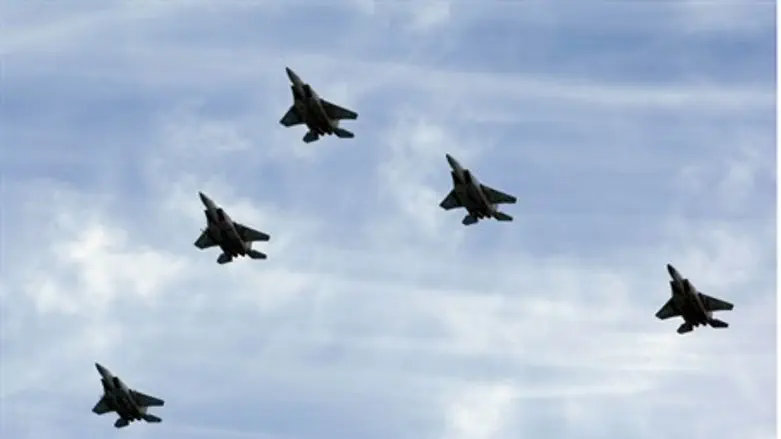
In response to China's recently declared "air-defense identification zone" that has sparked a standoff between world powers in the East China Sea, South Korean officials on Tuesday announced their nation's intentions to expand it's own "zone."
US Vice President Joe Biden is currently on a trip to Asia, and in Japan on Tuesday he emphasized that he will be "raising...concerns with great specificity directly" when he meets with the Chinese leadership later in his trip. He noted the US doesn't recognize the Chinese "zone," which raises the possibility of "accidents and miscalculation."
When Biden visits South Korea on Thursday, the South Koreans are expected to explain their position and officially declare the expansion of their "air-defense identification zone,' according to the Japanese Yomiuri Shimbun.
To be part of the expected declaration, South Korean Foreign Minister Yun Byung-se has cancelled foreign travel plans for the week.
The South Korean move is anticipated to further raise tensions in the standoff, which has made conflict in the region "much more likely now than it's probably been in years," according to Kurt Campbell, former top US State Department official for East Asia.
In an interview with CNN's Christiane Amanpour, Campbell anticipated skirmishes between Japan and China, noting "tensions between the two countries are greater now than they've been probably in a half century."
China's newly declared "zone" includes the disputed Senkaku islands which Japan currently administrates. It also includes a rock that is disputed between China and South Korea, called Leodo in South Korea and Suyan in China.
South Korea's move may also ratchet up tensions between itself and Japan, both of which are US allies.
Up until now Seoul has notified Japan when sending planes to patrol Ieodo island's airspace, which is included in Japan's "air-defense identification zone."
There are fears that the cooperation may cease, and further that Korea may expand it's "zone" to include another island which is the subject of disputes with Japan, called Takeshima in Japan and Dokdo in Korea.
Disputes over Takeshima/Dokdo have let to sharp tensions and protests between the two countries in the past.
Meanwhile, the US seems to be considering its position on the newly declared Chinese "zone."
On Tuesday, Congressman Randy Forbes, Chairman of the Armed Services Committee's Seapower and Projection Forces Subcommittee, sent a letter to US National Security Adviser Susan Rice, asking her to reconsider the US decision to have commercial airlines submit flight plans in the "zone" to China in acquiesence to the nation's demands.
According to Forbes, "the State Department and Federal Aviation Administration's 'guidance' throws America's aims into confusion, and leads to conflicting opinions with our ally Japan."
The Japanese government has requested from its domestic airlines not to submit flight plans to China.